 Last additions - Mino 美濃市 Last additions - Mino 美濃市 |

General information for visitors. The museum has three floors.Apr 17, 2020
|
|

Mino mascotsApr 17, 2020
|
|
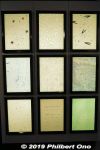
Mino washi postcardsApr 17, 2020
|
|
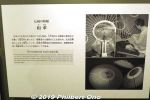
Washi umbrellasApr 17, 2020
|
|

Washi uchiwa fansApr 17, 2020
|
|

Wash for various purposesApr 17, 2020
|
|

Paper for everyday useApr 17, 2020
|
|

The spread of paperApr 17, 2020
|
|

Mechanized papermakingApr 17, 2020
|
|
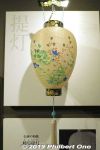
Washi paper lanternApr 17, 2020
|
|
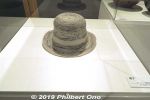
Washi hatApr 17, 2020
|
|

About washi yarn.Apr 17, 2020
|
|

Yarn and speaker cones made of Mino washi.Apr 17, 2020
|
|

Japanese styleApr 17, 2020
|
|
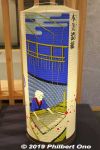
Apr 17, 2020
|
|
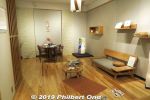
Apr 17, 2020
|
|
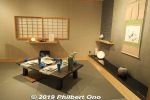
Apr 17, 2020
|
|

Exhibition room displaying washi used in practical and commercial products.Apr 17, 2020
|
|

Also on the 2nd floor, Exhibition Room II displaying washi used at home and in practical and commercial products.Apr 17, 2020
|
|
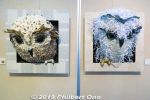
Apr 17, 2020
|
|
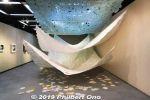
Mino Washi Museum, GifuApr 17, 2020
|
|
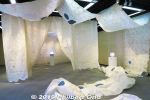
Mino Washi Museum, GifuApr 17, 2020
|
|

Apr 17, 2020
|
|
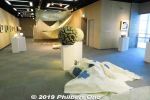
Apr 17, 2020
|
|
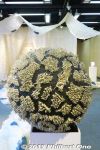
Mino Washi Museum, GifuApr 17, 2020
|
|
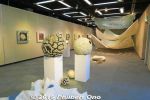
Exhibition room displaying washi art.Apr 17, 2020
|
|
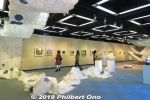
On the 2nd floor, Exhibition Room I displays washi art.Apr 17, 2020
|
|

Washi artist is Akiyama Nobushige.Apr 17, 2020
|
|
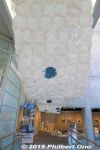
Apr 17, 2020
|
|
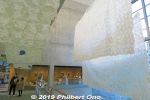
Apr 17, 2020
|
|
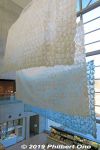
On the 1st floor below, there's a gift shop where you can buy Mino washi paper products. It's also where you can sign up for a washi papermaking lesson.Apr 17, 2020
|
|
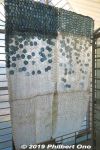
The museum has exhibition rooms and spaces to display washi artwork.Apr 17, 2020
|
|

Steps to make the washi fibers from mulberry plants, kozo, mitsumata, and ganpi. Bark is stripped and soaked in river water. Kozo is then boiled. Specks of impurities are picked off. The bark is mashed.Apr 17, 2020
|
|

Washi making lessons. You can make an A4 sheet, postcards, etc.Apr 17, 2020
|
|
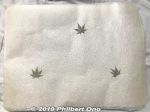
My Mino washi paper.Apr 17, 2020
|
|

The paper is them placed on this water heater to further dry the paper. We could take home our washi after 30 min.Apr 17, 2020
|
|

Paper vaccuum dryer sucking water from the wet washi paper moving across the slit underneath. Vey neat.Apr 17, 2020
|
|
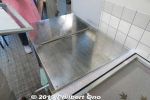
Paper vaccuum dryer. The slit sucks water from the paper.Apr 17, 2020
|
|
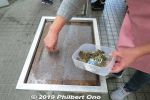
We could also put small leaves on the paper.Apr 17, 2020
|
|
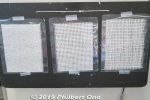
The streel grating makes these patterns on the paper. We could choose one of these.Apr 17, 2020
|
|
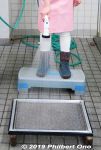
We could put a steel grating having a template design over the washi sheet and sprinkle water over it to impress the grating template on the the paper.Apr 17, 2020
|
|
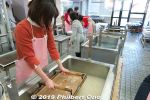
We tried making a washi sheet.Apr 17, 2020
|
|
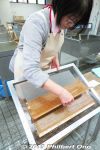
Transferring the paper sheet.Apr 17, 2020
|
|
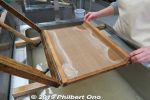
This is what happens when you don't do it right. Uneven paper.Apr 17, 2020
|
|
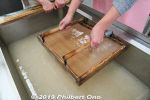
Dump the mold into the vat and swish it left/right and forward/back evenly.Apr 17, 2020
|
|
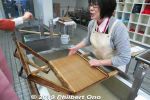
Apr 17, 2020
|
|
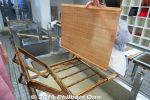
Our washi instructor taught us how to do it using a wooden mold (keta 桁) supporting a screen.Apr 17, 2020
|
|
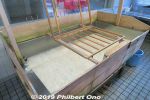
A large vat (sukifune) filled with washi fibers floating evenly in the water.Apr 17, 2020
|
|
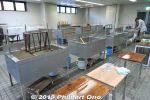
Basement floor has this paper-making workshop where you can try making your own washi paper. It can be a single sheet 33x45cm), 6 postcards, or diploma. Takes less than an hour. Fees are ¥500 to ¥800. ワークショップ - 紙すきの体験Apr 17, 2020
|
|
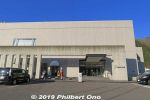
Entrance to Mino Washi Museum (Mino Washi no Sato Kaikan). It was renovated in April 2017, so it looks new. There are three floors, including a basement floor.Apr 17, 2020
|
|
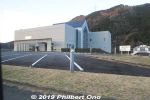
Mino Washi Museum has exhibits about washi history, washi making, and washi paper art. It also offers washi paper-making lessons. Make your own washi postcards, etc. Anybody can do it. Open 9 a.m.–5 p.m., closed Tue. Admission ¥500 (¥250 for elementary school and jr. high school). From Mino-shi Station, take a taxi. The museum is far from the train station because it needs to be near a clean river. Parking available.Apr 17, 2020
|
|
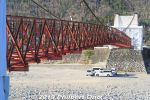
Mino Bridge over Nagara River. (Under renovation.) 美濃橋Apr 17, 2020
|
|
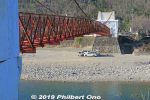
Mino Bridge over Nagara River. It has a wooden floor. It's being renovated so we couldn't cross it in Jan. 2019. Jumping off this bridge into the river can be fatal. 美濃橋Apr 17, 2020
|
|
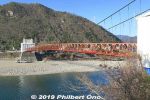
Built in 1916, Mino Bridge is Japan's oldest surviving modern bridge and a National Important Cultural Property. It's now a pedestrian and bicycle bridge 113 meters long. 美濃橋Apr 17, 2020
|
|
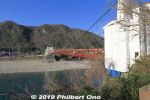
Mino Bridge over Nagara River. Until 1965, vehicles used to cross the bridge. 美濃橋Apr 17, 2020
|
|
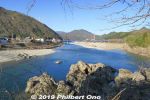
Nagara River in Mino, Gifu.Apr 17, 2020
|
|
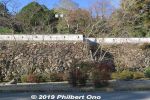
Ogurayama Castle on a hilltop. Kanamori Nagachika (1524–1608) was a daimyo who developed the Mino castle town. 小倉山城跡Apr 17, 2020
|
|

Ogurayama Castle on a hilltop. Originally built by Kanamori Nagachika (1524–1608) 金森長近 in 1605 as a retirement residence. Now part of Ogura Park in Mino, Gifu Prefecture. 小倉山城跡The turret is a reconstruction.Apr 17, 2020
|
|
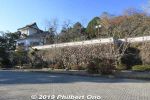
Also visited Ogurayama Castle on a hilltop nearby. 小倉山城跡Apr 17, 2020
|
|

Mino Tourist information office has tourist pamphlets. 美濃市観光協会「番屋」Apr 17, 2020
|
|
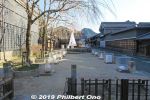
Apr 17, 2020
|
|

Matsuhisa Eisuke paper storeApr 17, 2020
|
|
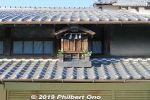
Little external shrine, Akiba-sama. 秋葉様Apr 17, 2020
|
|
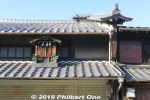
Apr 17, 2020
|
|
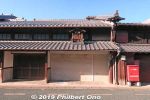
Apr 17, 2020
|
|

Sign about Sugihara Chiune who was born in 1900 at Kyosenji Temple in Mino, Gifu near here. 杉原 千畝Apr 17, 2020
|
|

Sign about Sugihara Chiune who was born in Mino, Gifu near here. Sugihara is famous as the Japanese diplomat in Lithuania who gave transit visas to Jews fleeing the Holocast during World War II.Apr 17, 2020
|
|
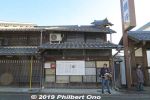
Juroku BankApr 17, 2020
|
|
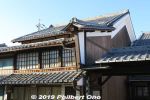
Udatsu roof firewall in Mino, Gifu.Apr 17, 2020
|
|

Markers commemorating a visit by the Emperor and Empress and Crown Prince.Apr 17, 2020
|
|
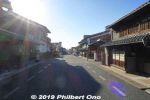
Apr 17, 2020
|
|
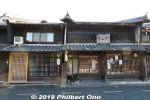
TomiyaApr 17, 2020
|
|

About Former Imai Residence. 旧今井家Apr 17, 2020
|
|
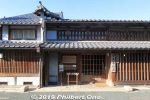
Former Imai Residence used as the Mino History Museum. Free admission.Apr 17, 2020
|
|
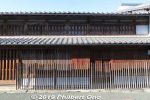
Former Imai Residence 旧今井家Apr 17, 2020
|
|
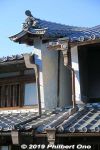
Yoshida Kobo udatsu roof firewall.Apr 17, 2020
|
|

Yoshida KoboApr 17, 2020
|
|
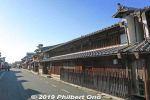
Yoshida KoboApr 17, 2020
|
|
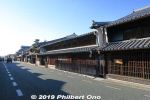
Udatsu roofs in Mino, Gifu Prefecture.Apr 17, 2020
|
|
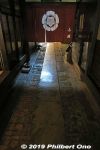
Kosaka Family ResidenceApr 17, 2020
|
|
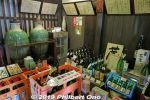
Inside Kosaka Family Residence is a sake shop.Apr 17, 2020
|
|

About Kosaka Family Residence. 小坂家住宅Apr 17, 2020
|
|
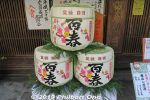
Apr 17, 2020
|
|

About Suzuki Kohei residence.Apr 17, 2020
|
|

Kosaka Family Residence of a sake brewing family. National Important Cultural Property. 小坂家住宅Apr 17, 2020
|
|
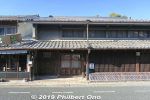
Former Honjin lodge for VIPs. Suzuki Kohei residence.Apr 17, 2020
|
|

Inside Hirata Family residenceApr 17, 2020
|
|

Signboards explain in English the most significant homes. This is the Hirata Family residence.Apr 17, 2020
|
|
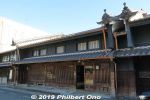
Hirata Family residence 平田家Apr 17, 2020
|
|
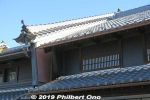
Apr 17, 2020
|
|
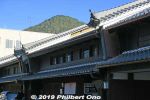
Mino basically developed as a merchant's town up to the late 19th century. Udatsu roof firewall in Mino, Gifu.Apr 17, 2020
|
|
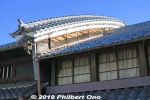
Mino in Gifu has a traditional townscape of "udatsu" homes. Udatsu is a decorative firewall on the side of the home's roof. Townscape is a rectangular area of residential streets lined with traditional homes. A few are open to the public.Near Minoshi Station on the Nagaragawa Railway. This area is a National Important Traditional Townscape Preservation District (重要伝統的建造物群保存地区).Apr 17, 2020
|
|
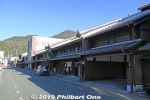
Mino and this townscape was part of the Mino castle town developed by Daimyo Kanamori Nagachika (1524–1608) who lived in nearby Ogurayama Castle. You can park your car somewhere and walk around the area.National Important Traditional Townscape Preservation District.Apr 17, 2020
|
|
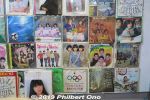
Pink Lady, Candies, Iwasaki Hiromi, etc.Apr 17, 2020
|
|
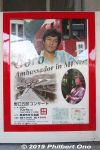
Pop singer Noguchi Goro posters.Apr 17, 2020
|
|
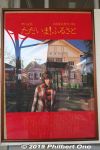
Pop singer Noguchi Goro posters. He was a super popular idol singer in the 1970s in Japan along with Go Hiromi and Saijo Hideki.Apr 17, 2020
|
|
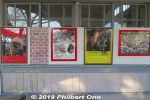
Pop singer Noguchi Goro posters.Apr 17, 2020
|
|
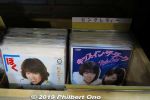
Records also on sale.Apr 17, 2020
|
|

1960s J-pop singers.Apr 17, 2020
|
|

45 rpm single records by J-pop idol singers from the 1970s.Apr 17, 2020
|
|

Inside the Mino Station office is now a shop selling old J-pop records from the 1960s and 1970s. Huge collection.Apr 17, 2020
|
|

Inside the Mino Station office is now a shop selling old J-pop records from the 1960s and 1970s.Apr 17, 2020
|
|
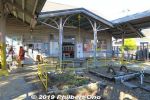
Mino Station as seen from the platform.Apr 17, 2020
|
|
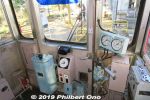
Driver's seat in モ601.Apr 17, 2020
|
|
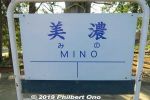
Old train station sign.Apr 17, 2020
|
|
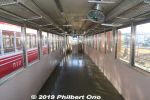
Inside モ601 train.Apr 17, 2020
|
|
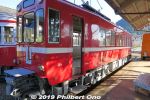
モ601Apr 17, 2020
|
|
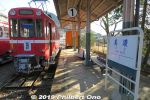
Mino Station, Gifu. モ601Apr 17, 2020
|
|
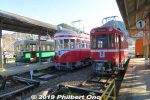
Mino Station, Gifu, with three retired trains on display.Apr 17, 2020
|
|
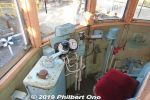
Driver's seat in モ512.Apr 17, 2020
|
|
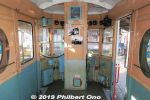
Driver's cab in モ512.Apr 17, 2020
|
|
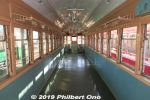
モ512Apr 17, 2020
|
|
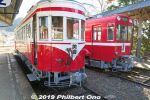
Mo 512 and Mo 601 trains.モ512およびモ601Apr 17, 2020
|
|
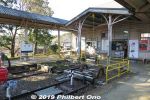
Apr 17, 2020
|
|
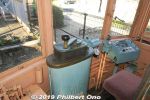
Apr 17, 2020
|
|
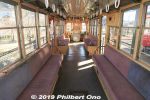
Apr 17, 2020
|
|
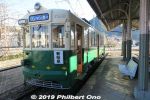
Apr 17, 2020
|
|
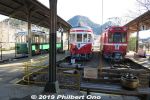
Three old trains are on display. You can go inside each one. Apr 17, 2020
|
|
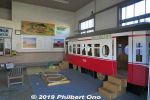
Play area for kids.Apr 17, 2020
|
|
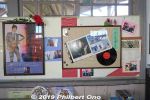
Pop singer Noguchi Goro is from Mino, Gifu.Apr 17, 2020
|
|

Mino Station waiting room.Apr 17, 2020
|
|
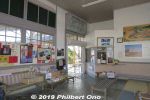
Inside Mino Station in Mino, Gifu Prefecture.Apr 17, 2020
|
|
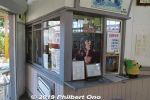
Mino Station ticket office.Apr 17, 2020
|
|

Monument by Mino city explaining the history of Mino Station. This station has been preserved as a testament to the hard work by forebearers for this old train line.Apr 17, 2020
|
|
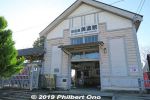
Mino Station on the old Meitetsu Mino-cho Line in Gifu Prefecture closed in April 1999 and has been preserved as a Registered Tangible Cultural Property (登録有形文化財) since 2005. The train line was abolished in March 1999. However, the charming station building still stands and open to the public, complete with a few trains on display. Mino Station first opened here in Oct. 1923. (Not to be confused with other Mino Stations in Japan.) Short walk from Minoshi Station (美濃市駅) on the Nagaragawa Railway. 名鉄美濃町線Apr 17, 2020
|
|
|
|
|
|
|